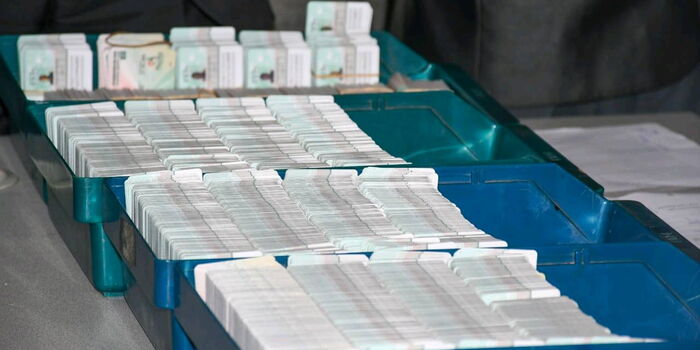The government, through the Department of Immigration, has called on Kenyans who applied for the new generation identification cards to pick them up at the respective application centers where they submitted their requests.
Julius Bitok, the Principal Secretary for Immigration, announced on Wednesday, February 5, that over 400,000 processed ID cards are still waiting to be collected from various centers nationwide.
Bitok made this statement while addressing the media at Nyayo House in Nairobi, emphasizing that there are still many uncollected IDs despite the government’s efforts.
Since the start of processing the new generation IDs, the government has successfully distributed three million ID cards across the country.
Bitok noted that while this was a significant achievement, many Kenyans who had applied for their IDs had not yet picked them up. He urged them to visit the centers and collect their IDs as soon as possible.
Apart from discussing the issue of uncollected IDs, Bitok also highlighted the government’s advancement in technology with the introduction of digital IDs.
He pointed out that the digital version of the new generation ID, which can be uploaded online, eliminates the need for people to carry the physical card.
This digital feature has been particularly beneficial, allowing individuals to store their IDs on their smartphones for easy access.
Furthermore, Bitok shared that the new generation IDs come with enhanced security features, such as encrypted biometric data and the individual’s photo, ensuring a higher level of security for users.
The government has also started rolling out these digital IDs, and Bitok expressed satisfaction with the Maisha card, which is a third-generation ID with the latest technological advancements.
“With the introduction of Maisha cards, you no longer need to carry your physical ID; you can store it on your phone,” Bitok said.
Introduced in 2023, the Maisha card replaced the previous Huduma number initiative, which had faced challenges. The new card was designed to address issues with security and privacy that arose with the second-generation IDs.
The Maisha card is a lifelong identifier that is signed upon birth and remains with the individual throughout their life.
Despite these technological advancements, many Kenyans have expressed frustration with the Maisha card, particularly due to the high cost of obtaining it.
In December of the previous year, Bitok was compelled to defend the government’s decision to increase the fee for applying for the ID.
He explained that the price hike was a result of rising inflation in the country, as well as the substantial costs associated with acquiring the materials needed for printing the IDs.
Bitok’s statements aimed to clarify the government’s position on the new ID system and encourage Kenyans to make use of the services provided, while also addressing concerns regarding the associated costs.
Join Gen z and millennials TaskForce official 2025 WhatsApp Channel To Stay Updated On time the ongoing situation https://whatsapp.com/channel/0029VaWT5gSGufImU8R0DO30


